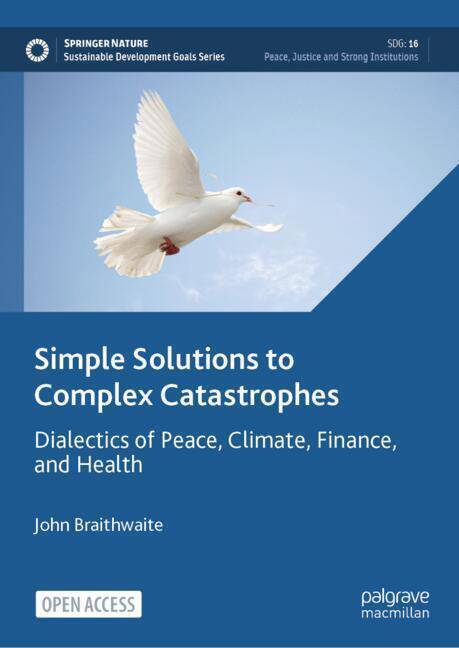
- Retrait gratuit dans votre magasin Club
- 7.000.000 titres dans notre catalogue
- Payer en toute sécurité
- Toujours un magasin près de chez vous
- Retrait gratuit dans votre magasin Club
- 7.000.0000 titres dans notre catalogue
- Payer en toute sécurité
- Toujours un magasin près de chez vous
Simple Solutions to Complex Catastrophes
Dialectics of Peace, Climate, Finance, and Health
John BraithwaiteDescription
This open access book sets out simple solutions to managing complex catastrophes. It focusses on four kinds of crises - climate change, crime-war cascades, epidemics and financial crises. These catastrophes are conceived as complex and prone to cascade effects. This book is optimistic in explaining that there are identifiable simple institutions that international society can strengthen and some simple principles that can help humankind to control the expanding gamut of complex catastrophes that confront the planet including simple, stable institutions and regulatory bodies. It draws on a wide range of current and past crises and challenges, from the Cold War to COVID-19, and from Weapons of Mass Destruction to restorative diplomacy with States like China, to provide an urgent and timely path forward.
Braithwaite argues that improved peacemaking, and step by step progress toward abolition of Weapons of Mass Destruction helps prevent environmental, pandemic, and financial catastrophes. His method across four kinds of crises is first to prioritize simple principles and simple institutions that prevent coupled catastrophes from cascading one to the other. The next step is to pursue requisite variety in responses by diagnosing dialectically when additional interventions will and will not add value for crisis control. Braithwaite argues that minimal sufficiency of deterrence, responsive regulation of risks, and restorative diplomacy offer superior theoretical foundations than realism in international relations theory and in organizational crime control. It speaks to those interested in criminology, public policy and international relations, political science, sociology, public health and economics.
Spécifications
Parties prenantes
- Auteur(s) :
- Editeur:
Contenu
- Nombre de pages :
- 436
- Langue:
- Anglais
- Collection :
Caractéristiques
- EAN:
- 9783031487460
- Date de parution :
- 27-02-24
- Format:
- Livre relié
- Format numérique:
- Genaaid
- Dimensions :
- 148 mm x 210 mm
- Poids :
- 689 g

Les avis
Nous publions uniquement les avis qui respectent les conditions requises. Consultez nos conditions pour les avis.






